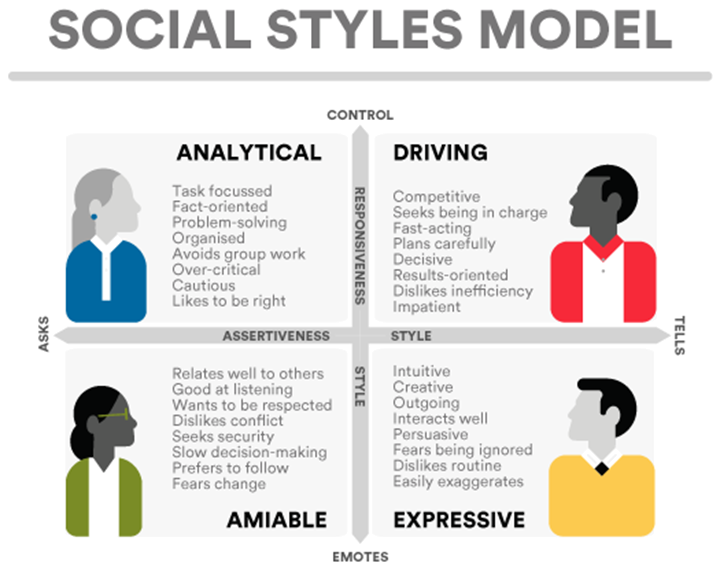
Socio-Communicative Scale
Richmond, V. P. developed the Socio-Communicative Orientation Scale in 1990 as an instrument designed to measure an individual's perception of how assertive and responsive they are.
The Socio-Communicative Orientations (SCO) assessment determines how you view your communication assertiveness, responsiveness, versatility, or flexibility behavior.
The Socio-Communicative Styles (SCS) assessment determines how others perceive a person's communication behavior.
Generally, these orientations are either totally uncorrelated or only marginally correlated.
Assertiveness and ResResponsivenesse are two of the three components of the SCO construct.
The third component is "versatility" or "flexibility." The "Cognitive Flexibility" scale best measures this third component.
The predictive validity of this instrument has been demonstrated in numerous studies.
Therefore, it is believed that the components of SCO (assertiveness, responsiveness, and versatility/responsiveness the essential cognitive elements of general communication competence.
Core Styles
There are four basic core styles based on the levels of both Assertiveness and Responsiveness:
Amiable
- High on responsiveness and low on assertiveness
- Considered relationship specialists
Analytical
- Low on responsiveness and low on assertiveness
- Considered technical specialists
Driver
- Low on responsiveness and high on assertiveness
- Considered control specialists
Expressive
- High on responsiveness and assertiveness
- Considered social specialists